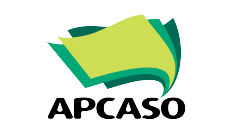
WHAT IS CRG?
CRG, or “Communities, Rights, and Gender,” refers to an approach to HIV, TB, malaria and related responses that promotes and advances community systems strengthening and responses, human rights, and gender transformation. A CRG lens centres programmes and interventions to the needs and realities of key populations and communities disproportionately impacted by the diseases.
With new and ambitious global targets to end the HIV, TB, and malaria epidemics by 2030, key populations, human rights, and gender equality will necessitate a more prominent role in global and national disease strategies. Within the Global Fund, the emphasis on CRG interventions is manifested through the establishment of the CRG Department and the CRG Special Initiative, which aims to ensure that communities affected by the diseases can meaningfully engage in Global Fund processes, and that GF-supported programmes respond to their needs. There is also an unprecedented emphasis on key populations, human rights, and gender equality in the recently approved “The Global Fund Strategy 2017-2022: Investing to End Epidemics.” Among others, the new strategy will:
- Maximise impact of investment by directing resources to countries with the highest disease burden but with the lowest ability to pay and to key populations disproportionately affected by the diseases;
- Strengthen community responses and systems to build resilient and sustainable health systems, and push for integrated service delivery for women, children and adolescents;
- Support the scaling up of disease programs that protect and promote human rights and gender equality;
- Mobilise to frontload investment for the effective implementation of the global strategies on HIV, TB, and malaria.
(Photo credit: The Global Fund Facebook Page)

A case for CRG interventions
The inclusion and prioritisation of CRG interventions in HIV, TB, and malaria responses reflect the increasing body of evidence on how the inclusion of communities and disproportionately affected by the diseases and the promotion and protection of human rights and gender equality are both critical in addressing barriers that impair the effectiveness of diseases responses. With new and ambitious goals of eliminating malaria and ending the HIV and TB epidemics by 2030, which rely on community-focused strategies for scaling up, programmes for key populations, human rights, and gender equality become all the more important.
Issues of key populations, human rights, and gender equality vary across the three diseases and across different country contexts. These could include stigma, discrimination, and violence that prevent key populations from accessing health services and from enabling health-seeking behaviors; laws that criminalise key populations, or hinder their enjoyment of their human rights; the inability or inadequacy of health systems, including other stakeholders, in addressing the needs of communities affected by the diseases; and the involvement and engagement of the same communities at all levels of the disease response, including their capacity to participate meaningfully.
APCASO updated its CRG needs assessment tool that was implemented by our country focal points and CSO partners in 12 countries in 2021 – 2022. Below are some of the cross-country CRG issues that surfaced from the needs assessment:
-
There is a general consensus that the information given to CSOs and community-led organisations are limited and that the development of the Funding Request is mostly led by the PR;
-
Community Systems Strengthening (CSS) activities are perceived to be somewhat included in the Funding Requests, however, it is a perceived that sustainability on CSS is only dependent to Global Fund. In one country, it was perceived that only big Principal Recipients benefit CSS;
-
Funding requests are perceived to prioritize biomedical interventions than human rights interventions. While human rights activities are included, they are most of the times overlooked and not included in the core set of interventions in the Funding Requests;
-
Interventions to address gender-related issues are present, especially in HIV, and although somewhat limited in TB, these do not cover all genders. For instance, only specific interventions for female sex workers and transgender women are present, but not with other genders. With malaria, however, activities are mostly for general populations which invisibilized gender-specific issues;
Barriers related to human rights and gender equality curtail the effectiveness and scale of HIV, TB, and malaria interventions. Therefore, it is imperative to address them in order to end the three epidemics. To guarantee the impact of investments on key population-focussed disease programmes, critical enablers become all the more important and CRG interventions should receive equal priority in disease programmes.
(Photo credit: The Global Fund Facebook Page)




